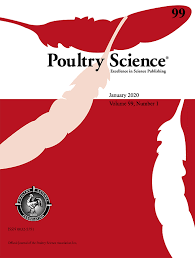Document type: scientific article published in Scientific Reports
Authors: Alexandra Green, Cameron Clark, Livio Favaro, Sabrina Lomax, David Reby
Preview: Cattle mother-offspring contact calls encode individual-identity information; however, it is unknown whether cattle are able to maintain individuality when vocalising to familiar conspecifics over other positively and negatively valenced farming contexts. Accordingly, we recorded 333 high-frequency vocalisations from 13 Holstein-Friesian heifers during oestrus and anticipation of feed (putatively positive), as well as denied feed access and upon both physical and physical & visual isolation from conspecifics (putatively negative). We measured 21 source-related and nonlinear vocal parameters and stepwise discriminant function analyses (DFA) were performed. Calls were divided into positive (n = 170) and negative valence (n = 163) with each valence acting as a 'training set' to classify calls in the oppositely valenced 'test set'. Furthermore, MANOVAs were conducted to determine which vocal parameters were implicated in individual distinctiveness. Within the putatively positive 'training set', the cross-validated DFA correctly classified 68.2% of the putatively positive calls and 52.1% of the putatively negative calls to the correct individual, respectively. Within the putatively negative 'training set', the cross-validated DFA correctly assigned 60.1% of putatively negative calls and 49.4% of putatively positive calls to the correct individual, respectively. All DFAs exceeded chance expectations indicating that vocal individuality of high-frequency calls is maintained across putatively positive and negative valence, with all vocal parameters except subharmonics responsible for this individual distinctiveness. This study shows that cattle vocal individuality of high-frequency calls is stable across different emotionally loaded farming contexts. Individual distinctiveness is likely to attract social support from conspecifics, and knowledge of these individuality cues could assist farmers in detecting individual cattle for welfare or production purposes.






